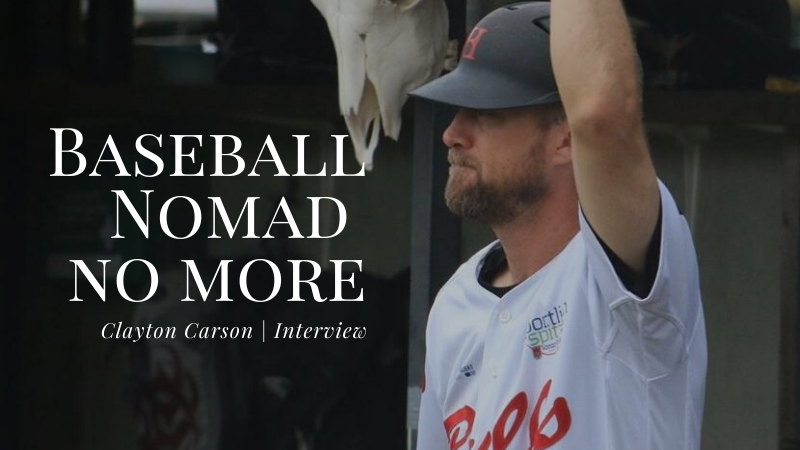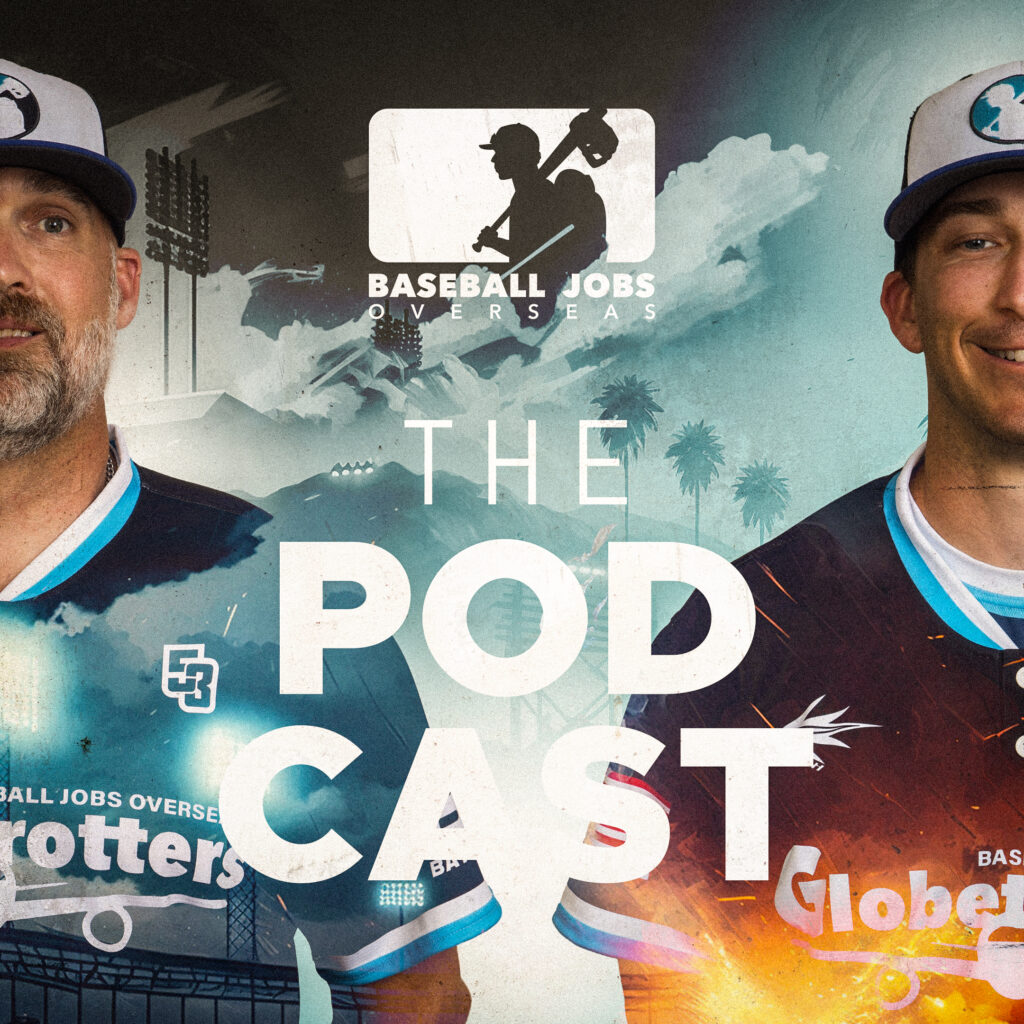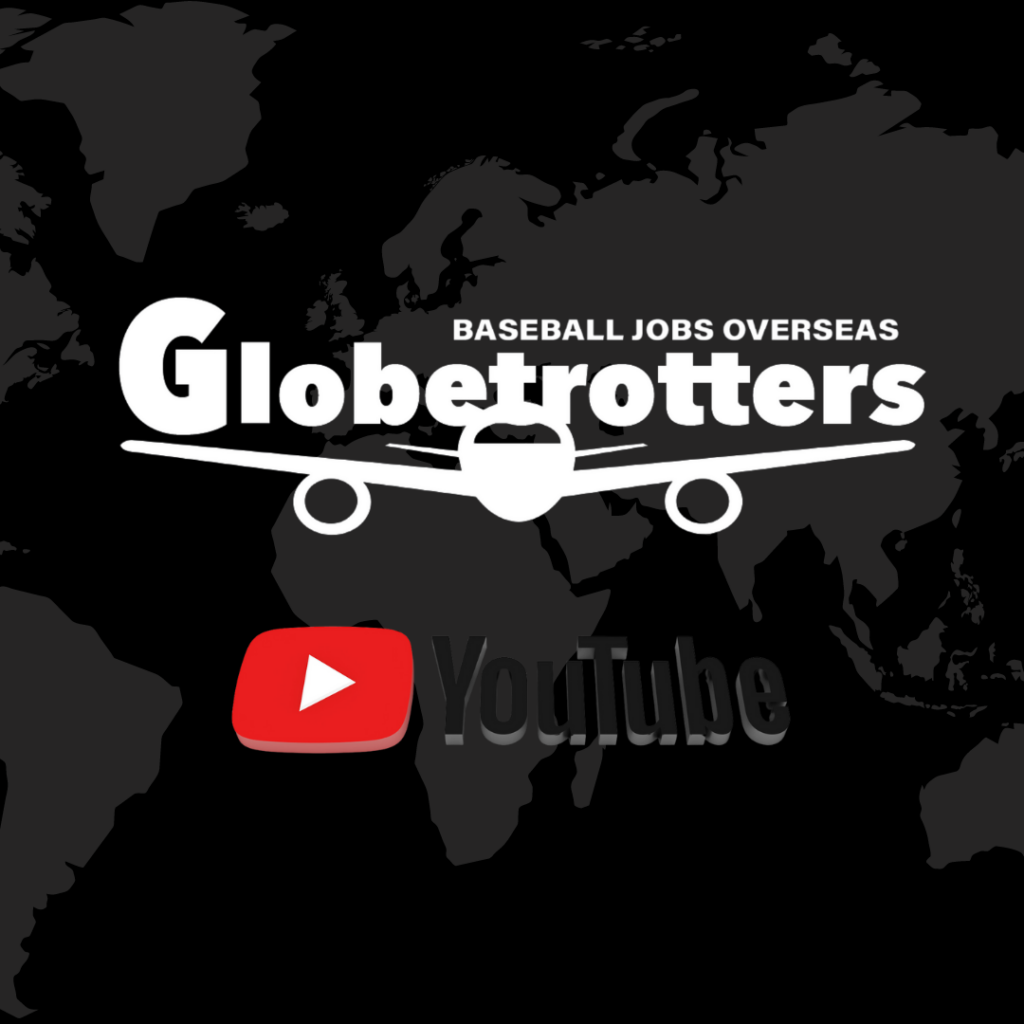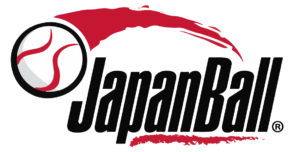July 21, 2020
By Carter Cromwell
Like many ballplayers and coaches, Clayton Carson’s story reads more like an odyssey – moving from place to place to place with usually no idea of where the next place will be.
But it appears his days as a baseball nomad may be over.
At 37, he’s living in Bregenz, Austria, and managing the team in the next-door town of Hard in Baseball League Austria. To most, that may seem an unlikely landing spot for a baseball lifer, but the born-and-bred Californian is more than content with it.
“I’m pretty settled here,” said Carson, now married to an Austrian native and with a one-year-old son. “Of all the places I’ve been, this is my favorite.”
Bregenz is in far western Austria, borders Lake Constance and is just a short hop from Germany, Switzerland and Lichtenstein.

Clayton in Vorarlberg, Austria with local friends
“It’s beautiful here,” Carson said. “I can go jogging and be in Germany in 20 minutes, Switzerland in 30 minutes and Lichtenstein in maybe an hour. I’m definitely not living here with regrets about missing anything. I’ve scratched that itch.”
That he has.
His mother was first cousin to former major-leaguer Bill Buckner, two of whose brothers also played pro ball. His older brother Matt, an outfielder, was a fifth-round draft choice of the New York Yankees and appeared in parts of four major-league seasons with Oakland, Minnesota and Cleveland.
Carson starred in high school in the southern California city of Yucaipa, from which seven big-leaguers – including Mark Teahen and Taijuan Walker – hail. He attended Brigham Young for two years, during which he also spent summers playing in Alaska and Hawaii – the latter including a month-long tour of Japan. Afterward, it was back to California for a stint at Saddleback Junior College and then to San Diego State, where he played for hall-of-famer Tony Gwynn.
He returned to Saddleback for a four-year run as coach before moving to Southern Utah University. After that, he was a scout for the Toronto Blue Jays, followed by a first go-round in Austria. Later, he was player/coach in Australia (twice), Switzerland, Italy and Sweden. He briefly returned to the United States before coming to Austria in 2018.
Whew!
“I’ve been a lot of places because of baseball – that’s for sure,” Carson said with a chuckle. “But I’m really happy here.”

Carson (left) in Australia with fellow international import players Will Thorp (center) and Jeff Barto (right)
In addition to coaching the team, he works mornings at an English-speaking kindergarten, which teams an Austrian teacher with a native English speaker. He’s looking for full-time work – “Baseball here doesn’t pay the bills” – and also taking classes to improve his German.
But though he’s more settled now, he doesn’t at all regret his baseball experiences. They were fun and instructive, while also providing perspective.
At BYU, he played briefly as a freshman infielder before back trouble flared up, requiring surgery. He then hit .326 in a part-time role the next year. He batted .333 to help his Saddleback team win the state title in 2004, after which he moved to SDSU where he batted .288 in 13 games before more back problems resulted in the second of three surgeries.
“That ended my dreams of playing in the major leagues,” he said.
His brother Matt, with whom Clayton overlapped one year at BYU, said, “Baseball was everything to him. As a kid, he tried soccer and water polo, but baseball was his passion. It’s unfortunate that the back trouble put a damper on things. It was one of those things that just got progressively worse.
“Then again, he got into coaching earlier than he might otherwise have,” Matt added. “When he first went to Europe, I was a little surprised, but not after thinking about it. In the U.S., it’s tough to get into pro ball in some capacity if you haven’t played professionally, so going overseas opened a lot more opportunities for him.”
After coaching at Saddleback, Clayton spent one year coaching at Southern Utah, which was an experience in itself.
“It was a rough place to recruit,” he said. “The school was in a remote location (Cedar City), and we only had four scholarships, whereas most Division I schools had 11.7. It was cold in the spring, and a 15-to-20mph wind almost always blew straight in from center field. And the school dropped the program after that season.”
Carson then spent a year and a half as a scout for Toronto but eventually decided that he preferred to be on the field. That led to the beginning of his overseas wanderings.
He discovered Baseball Jobs Overseas through a web search, and began thinking more about opportunities in Europe after talking with a friend who had played previously in The Netherlands.
“By then, it was April (2014), and most teams were full,” he said, “but (BBJO CEO) David (Burns) told me that there was a tournament in Austria and that I could try and talk to some of the teams there. So I flew to Copenhagen two days later and started working my way through Europe.

Carson at Finkstonball with Burns (center), and Jimmy Jensen (far right)
“David put me up when I got to Austria, and I discovered that there was a Polish team in the tournament that had lost some guys. They only had seven, so I and a few others played for them. The team name was so long that it went from the front of my jersey halfway around the back,” he said with a laugh.
Following the tournament, he was asked to help out with the team in Hard which he now coaches. The then-head coach was Japanese and spoke no English, so Carson came on to help run the practices and also play – “That’s how I got my foot in the door.” That all led to his stints in Australia and Europe.
“I was director of the program in Sweden in 2017 when Clayton was there,” said Andy Berglund, an international scout for the Milwaukee Brewers and coach of the South Africa national team. “He was coaching a team from the suburbs of Stockholm that I had used to play for, and we hit it off right away. He knows how to handle a club and has tremendous passion for teaching the game. I saw that just watching him work with his infielders one day.
“It was great talking with someone who has such a deep understanding of the game,” he continued. “And since he played for Tony Gwynn and has a brother that got to the major leagues, I’d pick his brain about what those guys did to be successful. We still stay in touch.”
Baseball is still a relatively minor sport in Austria – indeed, in most of Europe. Still, the interest has grown, if in fits and starts.
“Interest is kind of receding in places like Sweden and Italy,” Carson said. “In the ‘70s and ‘80s, Italy had a really good system for baseball, but now a lot of their stadiums are old and dilapidated. On the other hand, The Netherlands has a strong program, as does the Czech Republic, and Germany is picking up. It’s increasing here, too. The fact that the Olympics reinstated baseball helped because it means more funding for programs.”

Carson just prior to being ejected during an Italian Series A game while coaching for Novara.
The Bulls have dealt with some growing pains during his watch. Established in 1991, they won the title in 2001 but were out of the first division from 2005-2016. They moved back to the first division in 2017 and then a lot of their older players retired, leaving a relatively inexperienced squad. After a rough season in 2018, Hard made the playoffs last year, despite a losing record.
“We’ve improved, but it’s been a struggle,” Carson said. “We’ve had a lot of turnover, and this may be a tough year, too. The good news is that our season is about to start, and the rule this year is that every team will make the playoffs. So, knowing that we’ll get into the playoffs regardless, we’ll be able to give our younger guys more playing time than they might get in normal situation. That’s a positive thing for the future.”
Travel the world using baseball or softball as your ticket
Our baseball and softball members get paid to play or coach overseas year-round, mostly in Europe and Australia.
There are a variety of levels overseas which present opportunities for both the college grad and the established professional.




 Moonshot is a baseball apparel company based out of Mannheim, Germany, and is owned and operated by a good friend of ours, Juan Martin. What separates Moonshot from the other companies we have used in the past, is the value for your money and the customer service. You will not find prices like this in Europe or someone that responds faster.
Moonshot is a baseball apparel company based out of Mannheim, Germany, and is owned and operated by a good friend of ours, Juan Martin. What separates Moonshot from the other companies we have used in the past, is the value for your money and the customer service. You will not find prices like this in Europe or someone that responds faster. 
 High end, professional wood and composite bats with a wide selection of models using many different types of wood from Japan, North American and Taiwan. Hakusoh Bat is approved with the WBSC and across Europe.
High end, professional wood and composite bats with a wide selection of models using many different types of wood from Japan, North American and Taiwan. Hakusoh Bat is approved with the WBSC and across Europe. 




